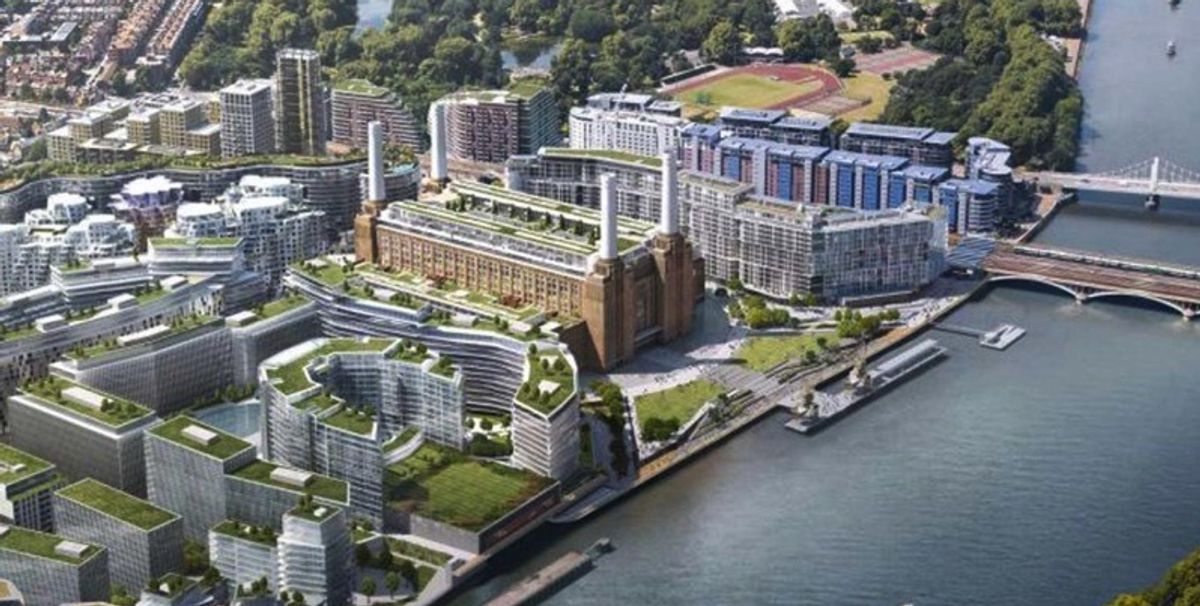The vast new Battersea Power Station regeneration project taking shape in south London will encompass several cultural initiatives including an annual public sculpture commission and a new multi-use arts venue called The Village Hall.
The revamped famous 1930s power station, which is owned by a consortium of Malaysian investors, is a flagship development at the heart of Nine Elms, the new residential and commercial district spanning the Thames from Lambeth Bridge to Battersea (the redevelopment is scheduled for completion around 2026). The developers say that £6.8m will be invested in the culture programme.
In a key move, Jude Kelly, the artistic director of the Southbank Centre in London, was appointed the cultural advisor at Battersea Power Station last year. Kelly told The Times newspaper that she envisages creating the world’s longest “arts corridor” along the river, stretching from The Globe Theatre next to Tate Modern down to the power station.
An annual sculpture commission, which will go on show in public spaces around the Battersea Power Station site, is organised by the Goodwood-based Cass Sculpture Foundation; the first work, to be announced shortly, is due to be installed in September, and will stay in situ for three months.
Misha Curson, the deputy director of the Cass Sculpture Foundation, tells us: “The most important thing to us was David Twohig’s [chief development officer at the Battersea Power Station Development company] commitment to support the artist's vision, to not set too didactic a brief, and his interest to work with artists with real critical rigour.”
The foundation has worked on several public commissions, including the Fourth Plinth in Trafalgar Square, and major consultancy projects. “It's no secret that commercial and luxury brands have an increasingly important role in the patronage of art, artists and institutions,” Curson says.
The Village Hall arts space, which is located under the Grosvenor Bridge railway arches, recently opened in the Circus West Village area while a 2,000-seat venue is scheduled to launch in the refurbished power station in 2020. Pop-up spaces and workspaces for artists are also part of the neighbourhood cultural strategy.


